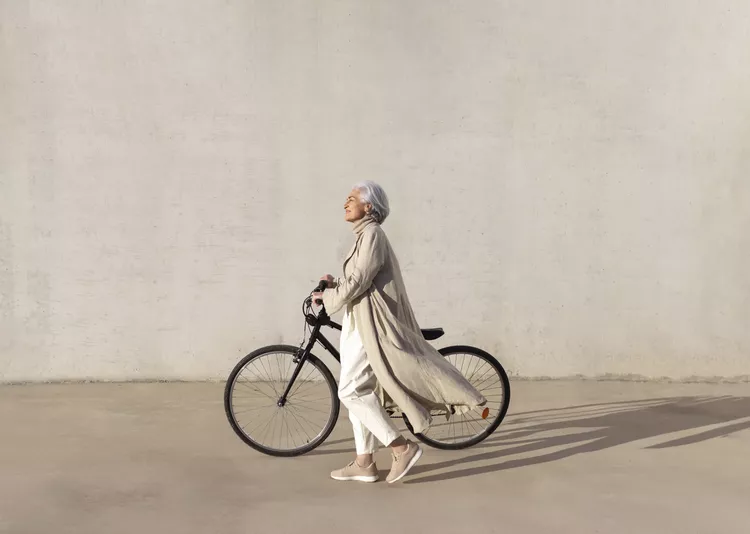In today’s fast-paced world, where the hustle and bustle of daily life can feel overwhelming, many are searching for a way to declutter their minds and their lives. Enter voluntary simplicity—a movement that invites individuals to strip away excess and focus on what truly matters. Imagine waking up each day with clarity, free from the weight of material possessions and societal expectations. It’s not just about living with less; it’s about embracing a lifestyle that prioritizes joy, connection, and purpose over consumerism.
If you’ve ever felt trapped in the cycle of buying more to find happiness or have longed for a simpler existence but didn’t know where to start, this exploration of voluntary simplicity is for you. Let’s dive deep into its history, benefits, different types, practical tips for adoption—and yes—some challenges you might face along the way as you embark on your journey towards a more meaningful life centered around simplicity.
The History and Philosophy of Voluntary Simplicity
The roots of voluntary simplicity can be traced back centuries. Philosophers such as Henry David Thoreau advocated for a life stripped of excess, urging individuals to connect with nature and embrace minimalism.
In the 20th century, this idea gained traction amid rising consumerism. People began questioning the relentless pursuit of material wealth. They sought fulfillment beyond possessions.
Key figures like Mahatma Gandhi emphasized living simply as a path to spiritual growth and social justice. Their teachings inspired movements focused on intentional living.
Today, voluntary simplicity resonates with those disillusioned by modern life’s complexities. It invites individuals to prioritize experiences over things and find joy in less rather than more. This philosophy is about making conscious choices that align with personal values while fostering a deeper connection with oneself and the world around us.
Benefits of Living a Simple Life
Living a simple life brings clarity and peace. By reducing clutter, both physical and mental, you create space for what truly matters.
Less time spent on material possessions translates to more moments with loved ones. You prioritize relationships over things, fostering deeper connections.
Financial freedom often follows simplicity. With fewer expenses tied to unnecessary items, you’re able to save money or invest in experiences that enrich your life.
Simplicity also encourages mindfulness. When distractions are minimized, it’s easier to appreciate the little joys—like a quiet morning or a good book.
Additionally, embracing simplicity can lead to better health. A less hectic lifestyle promotes relaxation and reduces stress levels, contributing positively to overall well-being.
Living simply cultivates gratitude for what you have rather than yearning for more. This shift in mindset can transform everyday experiences into meaningful memories.
Types of Voluntary Simplicity
Voluntary simplicity manifests in various forms, each tailored to individual needs and preferences. One popular type is minimalism, which emphasizes decluttering physical possessions. This approach not only frees up space but also fosters mental clarity.
Another method involves sustainable living. Here, individuals focus on reducing their ecological footprint through mindful consumption, eco-friendly products, and local sourcing. It’s a way of embracing simplicity that nurtures the planet too.
Then there’s intentional community living. People come together to share resources, responsibilities, and spaces. This collaboration cultivates relationships while simplifying everyday life.
There’s digital minimalism. In an age dominated by technology, reducing screen time and prioritizing meaningful online interactions becomes essential for maintaining balance and peace of mind. Each type offers unique advantages while promoting a lifestyle rooted in simplicity.
Tips for Adopting a Simpler Lifestyle
Start small. Choose one area of your life to simplify first. It could be your closet, digital space, or even daily routine.
Declutter regularly. Go through belongings and let go of items that no longer serve you. This practice creates a more open environment and clears mental space.
Limit distractions. Unsubscribe from unnecessary emails and minimize social media usage. Focus on what truly matters to you.
Embrace mindfulness. Take time each day to reflect on your priorities and values. Being present helps clarify what simplicity means for you.
Create a budget with intention. Track spending habits and identify areas where you can cut back without feeling deprived.
Connect with others who share similar goals. Join local groups or online communities dedicated to living simply, exchanging ideas, support, and inspiration along the way.
Try saying “no” more often when it comes to commitments that don’t align with your vision of a simpler lifestyle—preserve energy for what counts most in life.
Challenges and Obstacles to Voluntary Simplicity
Embracing voluntary simplicity can come with its fair share of challenges. Many people struggle against societal norms that glorify consumerism and excess. The pressure to keep up with trends can make simplifying your life feel like an uphill battle.
Another hurdle is the fear of missing out (FOMO). Letting go of material possessions might evoke anxiety about what you’re leaving behind, especially if friends or family members are heavily invested in a more conventional lifestyle.
Time constraints also pose a significant obstacle. Simplifying often requires intentional planning and effort, which may seem overwhelming amidst busy schedules filled with responsibilities.
Emotional attachments to belongings complicate the process further. Sentimental items can create resistance even when you know they no longer serve a purpose in your life. Facing these obstacles head-on takes courage and commitment but leads to rewarding experiences on the path to simplicity.
Conclusion: How Voluntary Simplicity Can Improve Your Life
Embracing voluntary simplicity opens the door to a more fulfilling life. By stripping away excess, you create space for what truly matters.
Imagine focusing on experiences rather than possessions. This shift enhances your relationships and deepens connections with loved ones.
Financial stress often diminishes our quality of life. A simpler lifestyle can alleviate these pressures, allowing you to live within your means while enjoying peace of mind.
Moreover, reducing distractions fosters mindfulness. You become more present in each moment, appreciating the little things that contribute to happiness.
Finding joy in simplicity cultivates gratitude and fulfillment. Life becomes less about chasing after material wealth and more about cherishing authentic experiences that enrich your soul.
FAQs
What is voluntary simplicity?
Voluntary simplicity is a lifestyle choice that encourages individuals to minimize their consumption and focus on what truly matters. It’s about prioritizing experiences over possessions and finding joy in the simple things.
How can I start living simply?
Begin by assessing your current lifestyle. Identify areas where you can cut back on unnecessary expenses or clutter. Start small; declutter one room at a time, reduce screen time, or limit shopping trips.
Is living simply expensive?
It doesn’t have to be. In fact, many find that simplifying leads to financial savings. By reducing material needs, you may discover more budget-friendly alternatives for entertainment and leisure.
Can anyone adopt this lifestyle?
Absolutely! Voluntary simplicity is accessible to everyone, regardless of background or income level. The key lies in personal values and choices rather than external circumstances.
Are there communities focused on voluntary simplicity?
Yes! Many online groups and local meetups exist for those interested in sharing resources and support around the principles of simplicity.
Will adopting a simpler life make me happier?
Many people report increased happiness when they simplify their lives. Less stress from consumer culture often leads to deeper connections with family and friends while fostering greater appreciation for life’s little joys.
Embracing voluntary simplicity can lead you down a path filled with clarity, purpose, and contentment—one step at a time toward meaningful living.

















